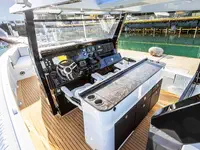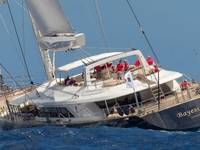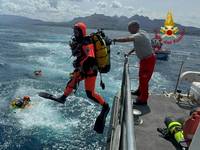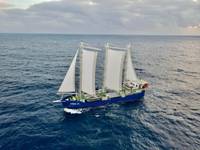Humphree Retrofits 130 ft Mangusta Superyacht
Humphree USA has revealed that a 130-ft. Mangusta motoryacht has become the first in North America to be fitted with quad fin stabilizers and quad interceptors.
When originally built in 2009, the superyacht was equipped with a set of four Humphree interceptors and a pair of course stability fins. The vessel was recently retrofitted with four 1.0-square-meter fin stabilizers, which have been fully integrated with the transom-mounted interceptors to provide a comprehensive stabilization solution in all sea conditions across the full speed range.
The retrofit was performed by Rosciolli Shipyard in Fort Lauderdale.
The installation includes Humphree’s exclusive computer-controlled Active Ride Control, Autotrim, Autolist and Coordinated Turn functions to automatically correct for motion in three dimensions and ensure a smooth level ride, even when making tight turns at high speeds.
The fins work alone between zero and 10 knots. As speed increases, the transom-mounted interceptors come into play and work in conjunction with the fins to stabilize the boat automatically under computer control.
“The owner was looking for a seamless stabilization system that would decrease rolling motions at anchor and also provide increased stabilization at full speed,” said Sean Berrie, president of Humphree USA. “We were able to offer an easily installed solution that works at speeds from zero to wide-open throttle while automatically adjusting to sea and wind conditions.”
Berrie noted that the Humphree interceptors and fins are totally DC electric powered, eliminating the need for messy, space-consuming and high-maintenance hydraulic systems.
“The compact 24VDC servos and unique flange design of Humphree’s fins made the retrofit a fast, easy and cost-effective procedure,” said Berrie.
The electric servos driving the fins are designed for silent low-power operation and can operate automatically all night at anchor without running a genset. Because Humphree’s fins can rotate through 360 degrees, they are able to minimize rolling action while preventing the boat from riding up over the anchor chain.





